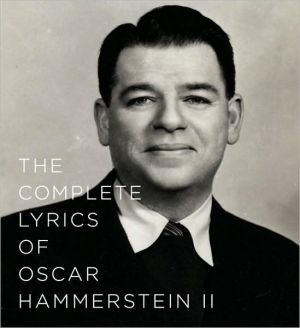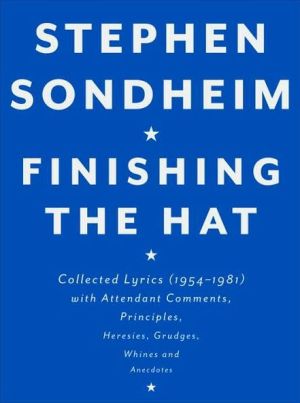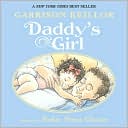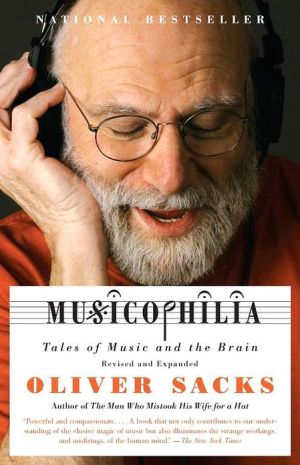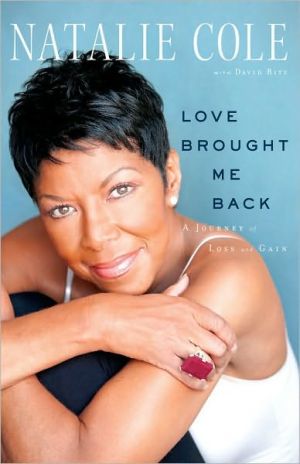Complete Lyrics of Oscar Hammerstein II
From every “beautiful mornin’” to “some enchanted evening,” the songs of Oscar Hammerstein II are part of our daily lives, his words part of our national fabric.\ Born into a theatrical dynasty headed by his grandfather and namesake, Oscar Hammerstein II breathed new life into the moribund art form of operetta by writing lyrics and libretti for such classics as Rose-Marie (music by Rudolf Friml), The Desert Song (Sigmund Romberg), The New Moon (Romberg) and Song of the Flame (George...
Search in google:
From every “beautiful mornin’” to “some enchanted evening,” the songs of Oscar Hammerstein II are part of our daily lives, his words part of our national fabric.Born into a theatrical dynasty headed by his grandfather and namesake, Oscar Hammerstein II breathed new life into the moribund art form of operetta by writing lyrics and libretti for such classics as Rose-Marie (music by Rudolf Friml), The Desert Song (Sigmund Romberg), The New Moon (Romberg) and Song of the Flame (George Gershwin). Hammerstein and Jerome Kern wrote eight musicals together, including Sweet Adeline, Music in the Air, and their masterpiece, Show Boat. The vibrant Carmen Jones was Hammerstein’s all-black adaptation of the tragic opera by Georges Bizet.In 1943, Hammerstein, pioneer in the field of operetta, joined forces with Richard Rodgers, who had for the previous twenty-five years taken great strides in the field of musical comedy with his longtime writing partner, Lorenz Hart. The first Rodgers and Hammerstein work, Oklahoma!, merged the two styles into a completely new genre—the musical play—and simultaneously launched the most successful partnership in American musical theater. Over the next seventeen years, Rodgers and Hammerstein wrote eight more Broadway musicals: Carousel, Allegro, South Pacific, The King and I, Me and Juliet, Pipe Dream, Flower Drum Song, and The Sound of Music. They also wrote a movie musical (State Fair) and one for television (Cinderella). Collectively their works have earned dozens of awards, including Pulitzers, Tonys, Oscars, Grammys, and Emmys.Throughout his career, Hammerstein created works of lyrical beauty and universal feeling, and he continually strove—sometimes against fashion—to seek out the good and beautiful in the world. “I know the world is filled with troubles and many injustices,” he once said. “But reality is as beautiful as it is ugly . . . I just couldn’t write anything without hope in it.”All of his lyrics are here—850, more than a quarter published for the first time—in this sixth book in the indispensable Complete Lyrics series that has also brought us the lyrics of Cole Porter, Lorenz Hart, Ira Gershwin, Irving Berlin, and Frank Loesser. From the young scribe’s earliest attempts to the old master’s final lyric—“Edelweiss”—we can see, read, and, yes, sing the words of a theatrical and lyrical genius. The Barnes & Noble Review Maybe he didn't have the razor-edge irony of Stephen Sondheim or the bitchy wit of Lorenz Hart, but Oscar Hammerstein II was a colossus in the history of the American musical theater. A beautiful morning turned into an even more beautiful day as I whizzed through my favorites in this volume -- from the badly underrated Carmen Jones of 1943 to the "Pore Jud Is Daid" requiem in Oklahoma! I knew that Hammerstein slaved over his lyrics for weeks and was always a bit jealous that Dick Rodgers could sit down and bang out the perfect music in seconds. That care is evident in Oscar's amazing job on Carmen Jones, fitting Bizet's rousing music into an African-American idiom: ("Beat out dat rhythm on a drum, / Dere's one big heart for all de worl' ") "Pore Jud," proved another challenge: as Hammerstein said, it was tough to elegize this "sulky farmhand, a 'bullet-colored, growly man,' a collector of dirty pictures." But the lyrics find a way: "He's all laid out to rest / With his hands acrost his chest. / His fingernails have never b'en so clean." I could go on for pages -- there are 850 songs, about a quarter never before published in book form, including many cut and unused songs worth including in some dream show. A final anecdote to illustrate where credit is due: Mrs. Jerome Kern and Mrs. Oscar Hammerstein II were supposedly at a dinner at which a third companion told Mrs. Kern how wonderful it was that her husband had written "Ol' Man River." As Mrs. Kern was thanking her for the compliment, Mrs. H. chimed in, "My husband wrote 'Ol' Man River.' Her husband wrote, 'Da de da dum.' " Exactly. --Dick Adler
Songs of 1916–1925\ Shakespeare Up-to-Date\ Oscar Hammerstein II’s first known lyric was a tercentenary tribute to the Bard (d. 1616) interpolated into The Peace Pirates, the Columbia University Varsity Show of 1916.\ Music probably by Ray Perkins. Published in a limited edition piano-vocal score. Introduced by principals and chorus.\ VERSE 1\ In my youthful college days I read all of Shakespeare’s plays From Henry VIII to Taming of the Shrew.\ I’ve seen almost ev’ry one Of the plays that Shaw has done,\ And can’t find much resemblance in the two.\ But strange to say I had an awful dream the other night.\ I woke to see this weird unusual sight:\ REFRAIN 1\ Oh there was Romeo and Imogen parading around the room.\ Lady Macbeth was getting married with Hamlet as the groom.\ Then Juliet and Lear were playing cards While Portia was keeping score.\ Now this may all seem wrong to you But I’m sure it would be true If George Bernard Shaw had but written Some of Bill Shakespeare’s plays.\ VERSE 2\ Once a friend remarked to me,\ How great would the profit be To put some music to Bill Shakespeare’s shows.\ I have hunted all around,\ There’s a man that I have found Could do the job as ev’rybody knows.\ Just fancy George M. Cohan in a music comedy For this is how his stunt would doubtless be:\ REFRAIN 2\ Henry VIII would wave a flag and sing “Hooray for the U.S.A.”\ Shylock would seek his pound of flesh in a patriotic way.\ Then Cleopatra might be seen in tights Or dancing with Romeo.\ Now this may all seem wrong to you But I’m sure it would be true If George Cohan had ever produced Some of Bill Shakespeare’s plays.\ Home, James (1917)\ New York run: Hotel Astor, Grand Ballroom; opened March 28, 1917; 5 performances. A musical comedy in two acts, presented by the Columbia University Players under the management of Charles Steiner, class of ’17. Book and lyrics by Herman A. Axelrod, ’15, and Oscar Hammerstein II, ’18L. Music by Robert K. Lippmann, ’19. Additional music and lyrics by Kenneth S. Webb, ’06; Roy Webb, ’10; M. S. Wolff, ’15; Robert A. Simon, ’18; Frank Padwe, ’16; Edgar Wolfe, ’20; Cyril S. Laub, ’18; and G. M. Watts, ’17. Staged under the direction of Kenneth S. Webb. Orchestra under the direction of Roy Webb, ’10. Orchestrations by Roy Webb.\ Major roles: John D. Beals Jr., ’17 (Gideon Guiness); Randolph M. Saville, ’18 (Steve Guiness, his son); James D. Herbert, ’19 (the Red Rose Girl); Phillip B. Leavitt, ’18 (Marion Gay, Steve’s sweetheart); Ormond V. Gould, ’17 (Lucius Vodka, a mysterious personage); Oscar Hammerstein II, ’18L (Armand Dubonnet, head waiter at Roget’s); H. William Hanemann, ’17 (Emma Guiness, Gideon’s better 99/100); Louis C. Owens Jr., ’20 (Vivienne, her daughter).\ Except as detailed below, the lyrics were preserved in a lavish program-libretto and in a smaller pamphlet of lyrics. The program advertises a vocal score, but none of the music is known to survive. A song list published in the Columbia Daily Spectator, March 9, 1917, includes the title “What’s This Old World Coming To?” by Axelrod, Hammerstein and Lippmann, to be performed in act two by the character Lucius Vodka; that song has not been found.\ Hammerstein played the leading comic role in the show, and after one of the matinees he received congratulations from fraternity brother Mortimer Rodgers and Rodgers’ musical younger brother, Richard.\ ACT ONE OPENING CHORUS\ Lyric by Oscar Hammerstein II and Herman Axelrod. Introduced by the ensemble.\ Ensemble:\ People think we’re bank directors Just because we dine at Rector’s.\ But from eight o’clock till five,\ We just have to keep alive Behind a ribbon counter.\ Every day when work is over,\ We start out each one a rover,\ Dancing till the break of day,\ Trying hard to look blasé In a careful, careless way.\ Girls:\ We are ladies of the chorus.\ Tired businessmen adore us.\ We hate auto rides and pearls,\ For we’re just hard-working girls.\ We are martyrs to the cause of art.\ Comedy Group:\ Our little group of serious thinkers Always investigates and tinkers,\ In our inimitable way With the problems of the day.\ Cubist art and verse that’s free,\ Surely are the things we Find most interesting,\ Oh, yes, we do.\ We’re the ones who set the craze Dining in red-ink cafes Until the lights go out.\ All:\ Stick around, this is going to be some show.\ We’ve seen all the rehearsals and we know.\ Scenery quite disturbin’\ Done by our own Urban.\ The cast and the chorus are chock full of pep and go.\ Every song has a tuneful melody,\ Sparkling with originality.\ As for the whole libretto and the lyricizing,\ There’s no use to start a- criticizing,\ If you don’t believe it, wait and see!\ Marion\ Lyric by Oscar Hammerstein II and Herman Axelrod. Introduced by Randolph M. Saville (Steve) and chorus.\ VERSE 1\ Girlies by hundreds I’ve oft met before And they’ve made no impression on me.\ Those who were pretty had nobody home And the bright ones were plain as could be.\ Some girls were shy But I passed them all by,\ And I shunned all the wise dames too,\ ’Cause each little peach had her own little flaw;\ But I’m glad I persisted For I found there existed The one and the only she!\ REFRAIN\ Marion, oh, won’t you marry me?\ You’re the only girl I’ve found.\ Marion, now please don’t carry on,\ For I’m hopelessly smitten And weak as a kitten,\ Whenever you’re around.\ All the rest are merely also-rans;\ There’s but one that I can see.\ Won’t you please stop your tarryin’,\ Dear little Marion,\ And think of marryin’ me?\ VERSE 2\ Where is the play of today that’s completed Without some love interest to blend?\ Don’t be so slow, dear,\ You may as well know, dear,\ You’ll be in my arms at the end.\ First you may dally,\ But at the finale I’ll call you my blushing bride.\ ’Cause if you were not,\ It would spoil all the plot.\ And a good leading lady Is never old-maidy,\ So let’s get the license now.\ REPEAT REFRAIN\ Plankety Plank\ Lyric by Oscar Hammerstein II and Herman Axelrod. Introduced by Randolph M. Saville (Steve), Phillip B. Leavitt* (Marion), and the Mandolin Club.\ VERSE 1\ A wee mandolin and a big guitar Were thrown together by chance.\ ’Twas way downtown in a music store They started their own romance.\ The great big guitar told the mandolin There was never an instrument cuter.\ When he stole a kiss, she Coyly told him that he Was a suitor Too ardent to suit her.\ REFRAIN\ “Plunkety-plunkety plunk, plunk?”\ That’s how he worded his plea.\ “Planky-planky plankety, planky plank,”\ She’d answer, “Not for me.”\ “See how you’re pulling my heart strings?”\ “Plankety, planky, plank.”\ Then at last his persistence Broke down her resistance,\ And so\ ’Tis said They went And wed,\ And now they are both in tune.\ VERSE 2\ The wee mandolin and the big guitar Have learned how to harmonize.\ He accompanies her every place she goes;\ He knows he has won a prize.\ He thrills as she trills in her rhythmic way For indeed they are never quite quiet.\ They have no cause to brood O’er the high cost of food,\ With their music and love for a diet.\ REPEAT REFRAIN\ * Phil Leavitt, who played the “heroine” of Home, James, is best remembered for his role in introducing Richard Rodgers to Lorenz Hart. He also performed “There’s Always Room for One More,” the first song with words by Hammerstein and music by Rodgers.\ Poor Armand\ Lyric by Oscar Hammerstein II and Herman Axelrod. Introduced by Oscar Hammerstein II (Armand). The New York Herald called Hammerstein “funmaker in extraordinary as Armand Dubonnet, maître d’hôtel, who breaks into society as a supposed comte.”\ I\ I was very young at the time,\ The spring was in the air,\ That is the season when a young man’s fancy Turns to thoughts that cause a lot of trouble.\ She was a wispy, fairy-like thing,\ Clad in her gossamer gingham.\ Out into the country, we’d take long walks.\ Oh—the bull! How I’d fling him.\ But one fateful day, I proposed to her.\ She coldly looked at me and said:\ “Grande passion is out of fashion, my dear Armand.\ It could never turn my head,\ You are nice boy and I like you,\ You are chivalrous—and all that sort of rot.\ But we could never tie the lover’s knot,\ For we are lovers—not!”\ II\ Then I met another girl,\ A ravishing vision of beauty!\ She had that golden hair and deep blue eyes That told of a nature That was proud—though Swedish.\ She was a cook in a beanery lunch,\ And I was only a waiter.\ But oh—the French pancakes that she could make!\ How I loved her cooking!\ But one day I looked through the kitchen door,\ Behol’ the sight that met my eye,\ Sitting in my chair was a great big fat policeman.\ Oh—I almost want to cry,\ I break in the door I say—“What does this mean?”\ She—“Armand, no more French pancake for you.”\ This cop—he was Irish too,\ And for him she make the Irish stew!\ III\ There was charming, chic ’Toinette,\ She was my fourth or fifth affaire.\ I thought she’d care,\ But she became a barber’s bride.\ There was Julie—roguish Jou-Jou,\ Sweet Marie and piquant Lulu,\ Fluffy frou-frou swiftly flitting from my side.\ I was always a girl’s first love,\ Never anybody’s last.\ Each said I was the first that ever kissed her,\ But it mattered not what I did,\ She decided very fast That to me she would be Just a sister.\ Here’s a letter from the last one:\ “Dearest Armand,\ I can’t forget last night, just when you left me.”\ Oh, it was very nice.\ “And how is my little papoose?”—\ She always calls me that—\ “And, Armand, dear, do you think That my husband—?”!!!\ Home, James\ Lyric by Oscar Hammerstein II and Herman Axelrod. Introduced by Randolph M. Saville (Steve), Phillip B. Leavitt (Marion), Ormond V. Gould (Vodka), and chorus.\ VERSE 1\ I want to be a star in moving pictures,\ Like Mary, Charlie, Douglas, and the other fixtures.*\ I will sell my autograph Written on my photograph.\ My personality Will make a hit for me,\ And I’ll be the talk of the town.\ REFRAIN\ You’ll see me twinkle, twinkle, twinkle as a movie star In glaring lights, from dizzy heights.\ When once or twice you’ve seen Me shine upon the screen,\ I’ll be riding round the city in my limousine.\ And then I’ll never, never, never go to bed until The clock strikes one, two, three or four o’clock.\ Then—“Home, James, drive me fast!”\ That’s the existence for me.\ Verse 2\ I loved the dirty villain in the drama.\ Poor dear Mathilda, he near killed her with a hammer.\ He used to hiss, “Where is the child?”\ But now his manner’s meek and mild.\ No more he’ll villainize.\ His aim with custard pies Has made him Keystone Komedy King.\ REPEAT REFRAIN\ * In the introduction to his anthology, Lyrics, Hammerstein gave the opening lines as “I want to be a star in moving pictures/Like Chaplin, Pickford, Fairbanks, and the other fixtures” and commented: “Quite a rhyme! Like my two collaborators, I expected to make my living in another calling.”
\ Library JournalThe latest entry in Knopf's superb "Complete Lyrics" series focuses on Oscar Hammerstein II (1895-1960), best remembered for his collaborations with Jerome Kern and Richard Rodgers on some of the American musical theater's most important works, from Show Boat(1927) to The Sound of Music(1959). Asch (ed., Playbill Broadway Yearbook) organizes over 800 songs with historical background and contemporary quotes. The lyrics are presented chronologically in chapters encompassing a year of focusing on major shows or topics. Asch includes texts from shows that did not succeed, songs that were cut before performance, and some that remain unpublished. A biographical time line and a title/first line index bookend the volume, which also includes charming photographs, reminiscences by Oscar's daughter Alice, and an introduction by Rodgers & Hammerstein Organization president Ted Chapin. Unfortunately, the indexers persist in listings under the articles a and the without cross-references to the first main word, but this is a minor glitch. This title supersedes any previous collection of Hammerstein's lyrics, such as Lyrics by Oscar Hammerstein II from Simon & Schuster in 1949 or Hal Leonard's 1985 volume of the same title (slightly expanded by Omnibus in 2002.)\ —Barry Zaslow\ \ \ \ The Barnes & Noble ReviewMaybe he didn't have the razor-edge irony of Stephen Sondheim or the bitchy wit of Lorenz Hart, but Oscar Hammerstein II was a colossus in the history of the American musical theater. A beautiful morning turned into an even more beautiful day as I whizzed through my favorites in this volume -- from the badly underrated Carmen Jones of 1943 to the "Pore Jud Is Daid" requiem in Oklahoma! I knew that Hammerstein slaved over his lyrics for weeks and was always a bit jealous that Dick Rodgers could sit down and bang out the perfect music in seconds. That care is evident in Oscar's amazing job on Carmen Jones, fitting Bizet's rousing music into an African-American idiom: ("Beat out dat rhythm on a drum, / Dere's one big heart for all de worl' ") "Pore Jud," proved another challenge: as Hammerstein said, it was tough to elegize this "sulky farmhand, a 'bullet-colored, growly man,' a collector of dirty pictures." But the lyrics find a way: "He's all laid out to rest / With his hands acrost his chest. / His fingernails have never b'en so clean." I could go on for pages -- there are 850 songs, about a quarter never before published in book form, including many cut and unused songs worth including in some dream show. A final anecdote to illustrate where credit is due: Mrs. Jerome Kern and Mrs. Oscar Hammerstein II were supposedly at a dinner at which a third companion told Mrs. Kern how wonderful it was that her husband had written "Ol' Man River." As Mrs. Kern was thanking her for the compliment, Mrs. H. chimed in, "My husband wrote 'Ol' Man River.' Her husband wrote, 'Da de da dum.' " Exactly. --Dick Adler\ \
